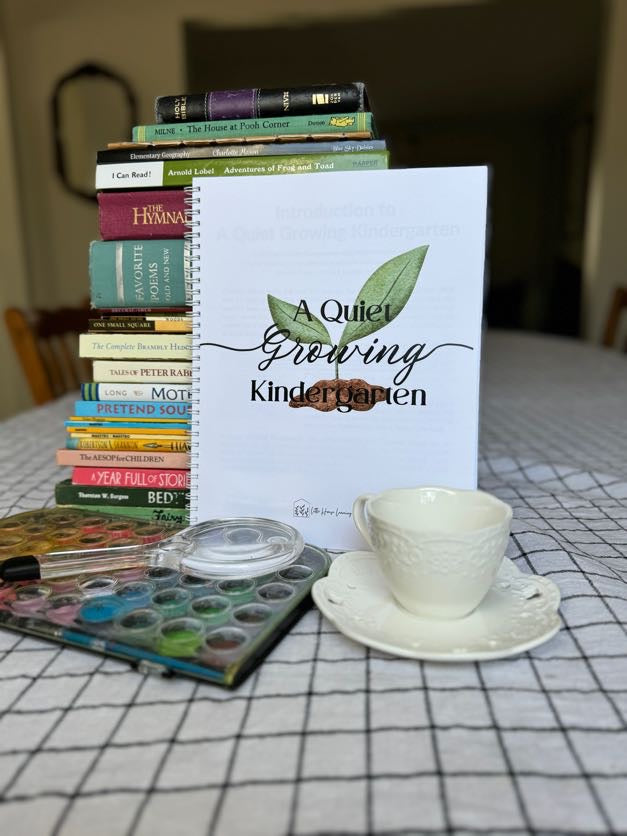If you have been around the homeschooling community in the recent years, especially in the Charlotte Mason homeschool community, you've probably heard someone refer to a book as a "living book". The first time I ever heard this phrase it really captured my attention. It resonated somewhere deep within me and I wanted to know more about what makes a book "living".
Maybe you've also heard the opposite term--calling a book "twaddle". There is a lot wrapped up in each of these terms, so I wanted to share what they mean, how you can identify them and other factors you can use when looking for books to read with your children!
“One more thing is of vital importance; children must have books, living books. The best is not too good for them; anything less than the best is not good enough.” -Charlotte Mason, Parents and Children
What Is A Living Book?
Living Books, according to Charlotte Mason, are the best kinds of books. The working definition you'll hear most often is that that living books are not dull or dry, but that they make a subject come alive! They're not filled with route facts but instead, with well-told stories that present beautiful ideas, imaginative images wonderful characters, and beauty to feed the heart, soul, mind and interest of their reader.
What Is Twaddle?
Twaddle is basically the opposite. It is typically considered any literature that talks down to a child, is stale, dry, predictable or silly and trivial. Twaddle can be any literature that is dumbed-down, senseless, and provides no substance to the child's mind.
How Can I Tell The Difference Between Living Books and Twaddle?
Personally, I think it's easy to put too much weight on these two terms. They are helpful starting points, but can be very subjective. What is a living book to someone, might feel like twaddle to another. These are not the only two categories that matter, and many books can contain elements of both!
Other Factors to Consider
-
ENJOYMENT VS. NON-ENJOYMENT: A great rule of thumb for figuring out if a book is living or not is if you enjoy reading it. If you can read it again and again and still enjoy it, it is a worthwhile book!
-
CHALLENGING VS. EASY: Just because a book is easy to read doesn't mean it is twaddle, and vice versa. There are many light fiction books that contain worthy, beautiful ideas and heroic characters!
-
OLD VS. NEW: Not all vintage books are worthy books and not all newer books are twaddle. Beware of being caught in this line of thinking!
- THEMES: Books with big, rich themes can still be twaddle. It all depends on the tone of the book. Is it condescending? Does it over simplify or leave out important details making it "childlike"? Unfortunately, I see this the most often in Bible resources for children (taking very big themes and watering them down for children).
“They must grow up upon the best. There must never be a period in their lives when they are allowed to read or listen to twaddle or reading-made-easy. There is never a time when they are unequal to worthy thoughts, well put; inspiring tales, well told” -Charlotte Mason, Parents and Children
To Remember
It's easy to get caught up in wanting to label every book as worthy or not worthy by calling it "living" or "twaddle" but there are actually lots of books that fall somewhere in the middle--neither living nor twaddle.
You can't take one characteristic and assume every book matching that characteristic makes it one or the other. Both twaddle and living books can be lighthearted, funny, or serious. Twaddle can be found in any genre and living books can be found in any genre.
Charlotte Mason and Living Books
When Charlotte Mason was writing about living books, it important to remember her context. Children's literature was not what it is today. We've seen huge changes in the number and types of books that are being published for children even in the last 50 years! Children's publishing is considered to be a $2.6 billion dollar industry now. There are more books than ever before, and so much more to sort through than when Charlotte Mason was alive.
But, I think the heart of Charlotte Mason's teaching about living books is to give our children great books to read. Without being legalistic, I think we can take Charlotte Mason's principles about living books and use it as a great tool for finding books we love! We know that books shape character and thinking and so we should want to give our children the very best that we can!




